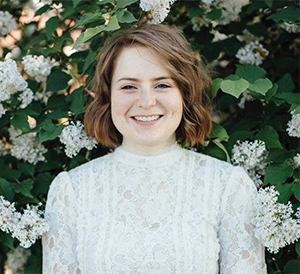Are you dependent on that daily cup — or pot — of jo? Well, there are indeed some compelling reasons out there to drink up — like helping you live longer. But, not all coffee is created equal, and not all coffee drinking is responsible coffee drinking. Do you know where your coffee comes from? You should. Local java expert Jessica Easto, author of “Craft Coffee: A Manual,” explains.

Make It Better: Does most of the coffee we drink come from the same place?
Jessica Easto: Yes — it’s almost all produced in what is referred to as the bean belt, a strip of the globe between the Tropic of Cancer and the Tropic of Capricorn. There are more than 50 countries that grow coffee, and of those, you’ll most commonly see about 20 of them labeled as “origin” on bags of high-quality coffee in the United States — mostly from parts of Africa, Central and South America, and Indonesia.
What are the ethical and sustainability issues facing the coffee industry right now?
Workers have been exploited, ecosystems have been razed to make way for mono-crop coffee plantations, and waste can be a problem. Coffee is often grown in developing countries, where resources are limited and it is difficult to track the bean at all stages of the process. There is also a lot of waste produced by coffee companies and consumers (think about all those disposable cups and plastic pods, for example).
What should we do to be more responsible coffee drinkers?
Understand that labels like “USDA Organic,” “Fair Trade,” “Rain Forest Alliance,” and “Bird-Friendly,” all of which signify some level of ecological and ethical responsibility, aren’t failproof. For example, the USDA Organic certification doesn’t require that no synthetic materials be used in production. Similarly, “Fair Trade” has been criticized in recent years for not being all that fair. On top of this, some certifications require producers to pay a fee that many simply can’t afford. The best way for you to make good purchasing decisions is to develop a relationship with your local roaster, just as you would at the farmers market or butcher.
As a consumer, you can also do your part to make sure you’re enjoying your brew in an environmentally responsible way. Used grounds and paper coffee filters can be composted. (Those grounds are also an amazing skin exfoliant!) And you can support companies that use the byproducts of coffee production. For example, an Australia-based startup called Huskee makes reusable cups from parchment (also called the “husk”), which is typically removed from the beans and discarded as waste.
More from Make It Better:
- 5 New and Noteworthy Books to Read This Spring
- Northwestern Professor Wendy Pearlman Talks New Book About Syrian Refugees
- New in Town: Put These New Businesses in Chicago and the Suburbs on Your Radar
 Danielle McLimore is a Chicago-based writer and editor who has worked in book publishing since 2009. She lives with her husband, two sons, and a very misbehaved dog. She proudly supports the Center for Reproductive Rights.
Danielle McLimore is a Chicago-based writer and editor who has worked in book publishing since 2009. She lives with her husband, two sons, and a very misbehaved dog. She proudly supports the Center for Reproductive Rights.

